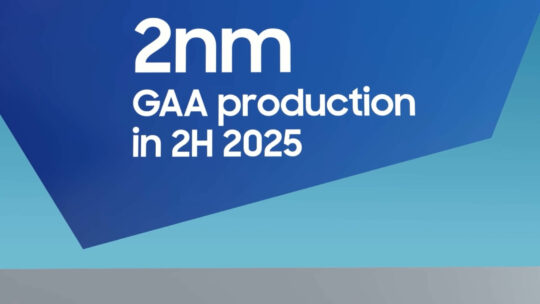Apple was expected to be the first to launch processors made using a 2nm process node. However, the company has reportedly postponed it due to the high pricing of getting 2nm chips made by TSMC. A report claims Nvidia and Qualcomm are now also looking at Samsung for their 2nm chips.
To diversify supply chain, Nvidia and Qualcomm interested in Samsung's 2nm chip process
Apple was expected to use a 2nm chip (tentatively named A19 Pro) inside the iPhone 17 in late 2025. However, according to a report from Chosun Biz, Apple has postponed its 2nm chip production to 2026 due to TSMC's extremely high costs.
Currently, Japan's Rapidus, South Korea's Samsung Foundry, and Taiwan's TSMC are trying to start the mass production of semiconductor chips using their 2nm-class process nodes. TSMC is said to be ahead in this race, with yields reaching 60%, and is reportedly conducting process tests with its clients.
Apple, Nvidia, and Qualcomm are said to be the first brands to launch chips made using a 2nm process node. However, TSMC's production capacity is extremely limited. The company is investing heavily to expand its production capacity from the current 10,000 wafers per month to 80,000 wafers per month, but that could only happen by 2026.
So, Nvidia and Qualcomm are reportedly conducting tests using Samsung Foundry's 2nm process. While Samsung has secured orders from fabless chip firms like Preferred Networks (PFN), it needs big clients like AMD, Nvidia, and Qualcomm to achieve enough orders to become profitable.
Moreover, Nvidia and Qualcomm don't want to rely too much on TSMC, as they won't have the negotiating power and will have to pay TSMC extremely high costs. So, the companies want to diversify their supply chain and get at least some chips made by Samsung Foundry's 2nm process node.
Samsung Foundry received a bad reputation in the past, especially after Samsung's and Qualcomm's 4nm chips faced overheating and performance throttling issues. Since then, it hasn't been able to convert any top client for its 3nm chip process. And it might be the company's last shot at success.
The South Korean firm's entire semiconductor division is facing a huge risk, as the prices of DRAM and NAND have seen massive drops. Its HBM3E memory chips haven't received Nvidia's certification yet. If the company's 2nm process node fails to attract clients, things could get ugly at Samsung Foundry.
The post As TSMC gets costly, Nvidia and Qualcomm look at Samsung for 2nm chips appeared first on SamMobile.

0 comments: